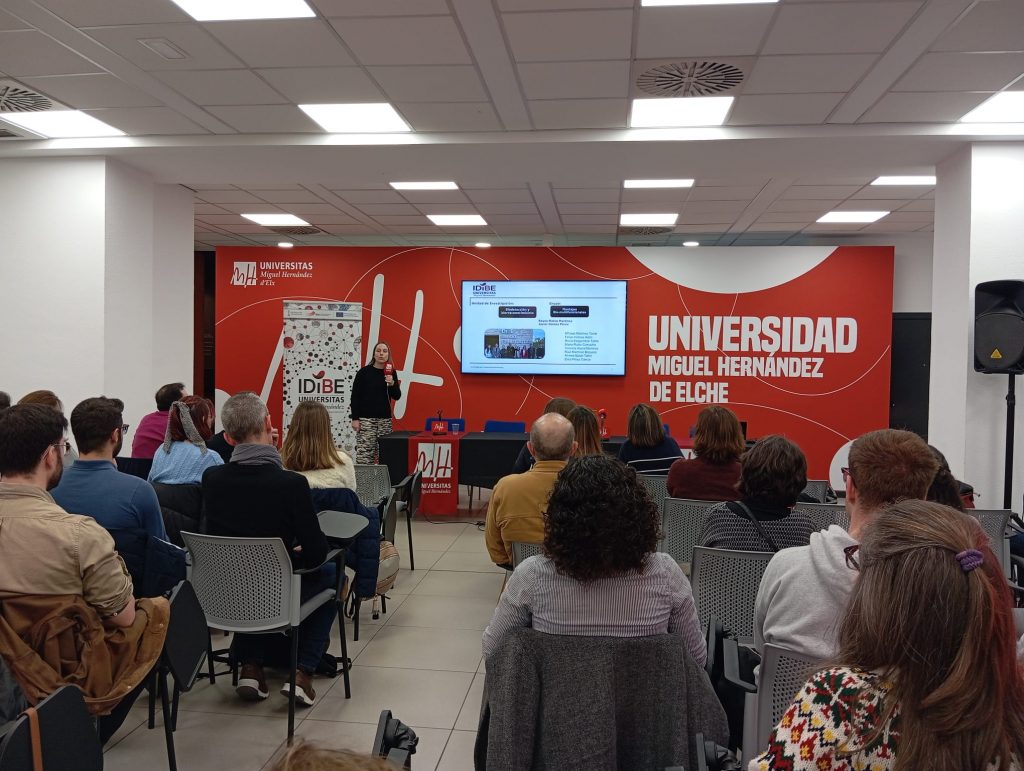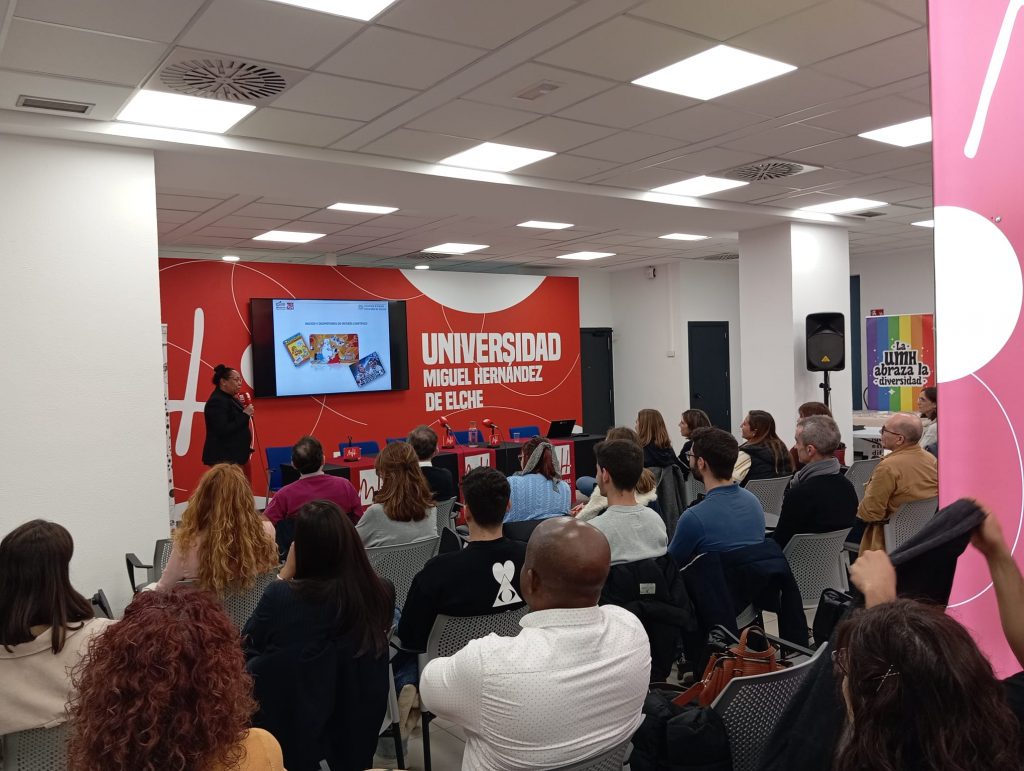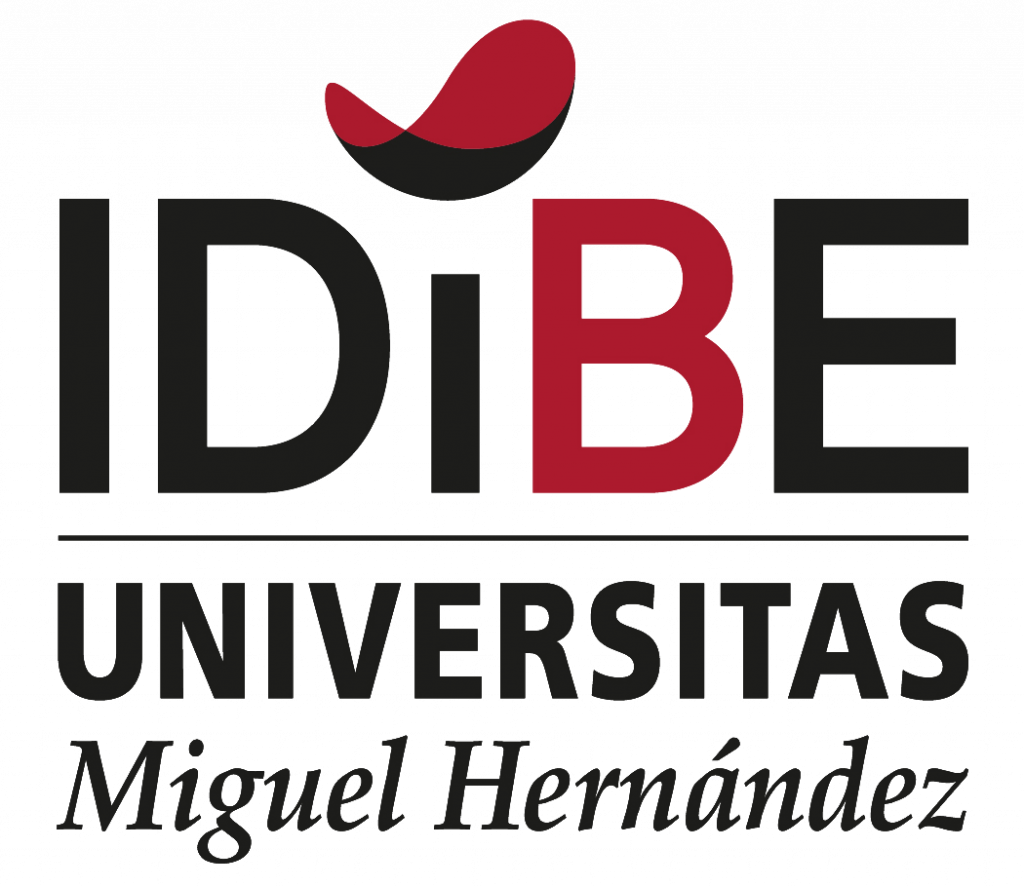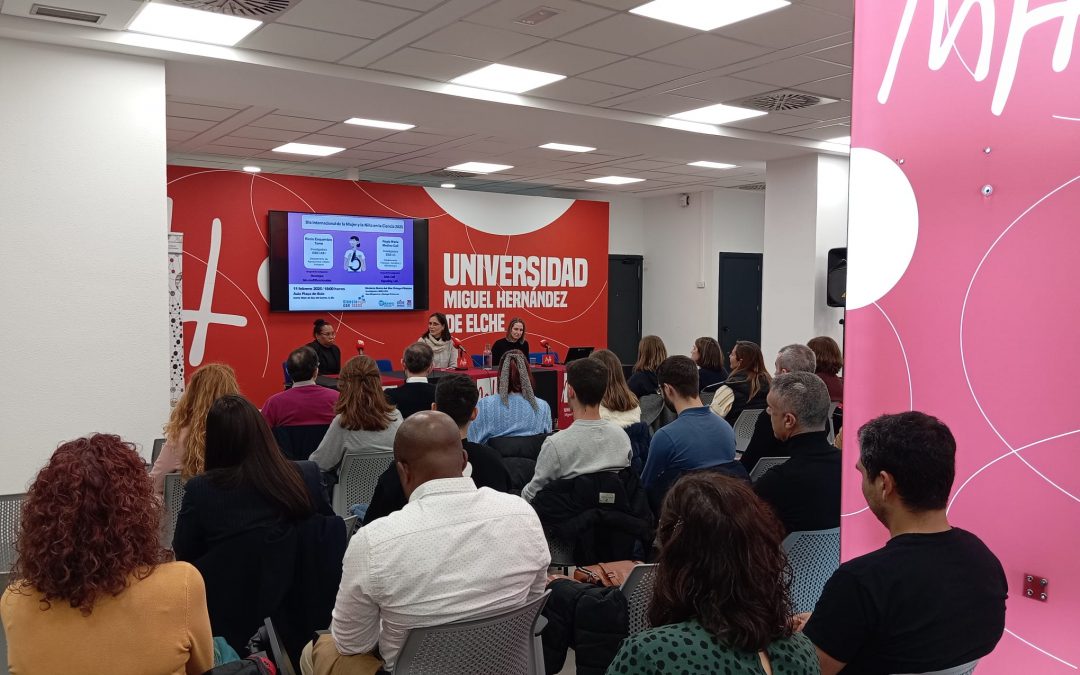As in previous years, IDiBE has held its traditional Ciencia con Tapas event to celebrate February 11th: International Day of Women and Girls in Science. The event took place at the Aula Plaça de Baix of UMH in Elche and was moderated by Dr. María del Mar Ortega Villaizán.
The event began with a warm welcome from Dr. Antonio Ferrer, Director of IDiBE, who reminded attendees that these outreach talks have been held since 2012 in various locations in Elche and Alicante to communicate and share with the local population the scientific research conducted in the province. In this session, two female researchers shared their scientific careers and how they have influenced their personal lives.
First, Dr. Rocío Esquembre, a tenured professor in the Department of Agrochemistry and Environment at UMH and a member of the Biomultifunctional Assemblies Research Group at IDiBE, discussed her research. She is currently focused on identifying drugs that inhibit metabolic syndrome-related proteins such as lipase, as well as improving the safety and efficacy of existing drugs through targeted delivery using liposomes. She began her studies in Chemistry at the University of Alicante (UA), later pursued Biochemistry at UMH, and completed a PhD in Molecular and Cellular Biology with a dissertation titled Silica matrices for the immobilization of lipid systems: Characterization and application to ion channels reconstituted in membranes. During her doctoral studies, she conducted research stays at the Instituto Superior Técnico in Lisbon and the National University of Ireland, returning to Lisbon for her postdoctoral research. Throughout her career, she has investigated the development of fluorescent biosensors to measure nitric oxide in the exhaled air of mechanically ventilated patients and the propensity of certain proteins to form amyloid plaques.

Next, Dr. Regla María Medina Gali, an assistant professor in the Department of Physiology, Genetics, and Microbiology at UA and a member of the Islet Cell Signaling Lab at IDiBE, shared her experiences. In recent years, her research has focused on studying the effects of plastic-derived compounds, such as bisphenol and phthalates, on diabetes, where these chemicals have been shown to act as endocrine disruptors. Originally from Cuba, she studied Biochemistry at the University of Havana and worked for 15 years at LABIOFAM, a biotechnology group where she developed multiple health-related products and studied their properties. During that time, she collaborated with Dr. Amparo Estepa at UMH to investigate the anticancer properties of scorpion venom in different models. She also studied the effects of certain viruses on fish species and peptides for skin regeneration. She later pursued a PhD in Molecular and Cellular Biology at IDiBE, with a dissertation titled Epigenetic and proteomic changes in zebrafish in response to infection with spring viremia carp virus.

Finally, the event concluded with a discussion that highlighted the importance of adaptability in scientific careers, such as living in different countries and researching various topics, as well as the value of maintaining professional relationships over time. On a less positive note, participants emphasized the challenges of job stability in academic research, which significantly impacts personal life, particularly motherhood. There was a call for greater gender equality and for decision-makers to invest in the future of research.
Author of the text: Irene Pomares Bri
See the event at this link.

